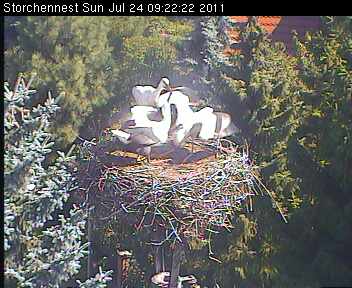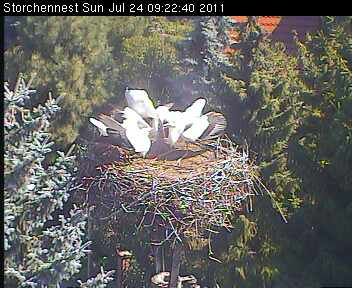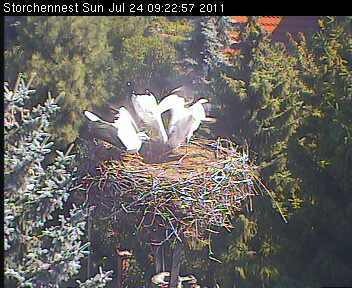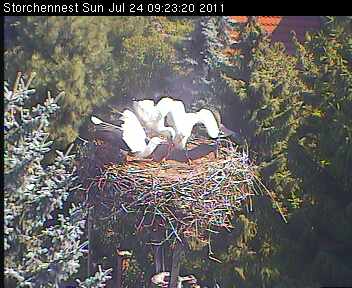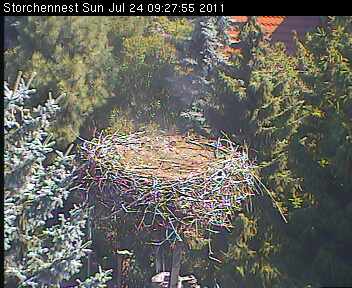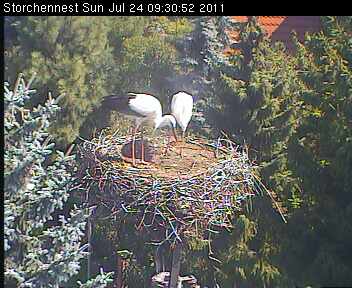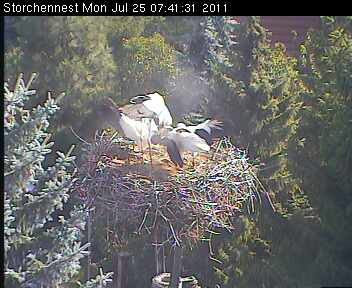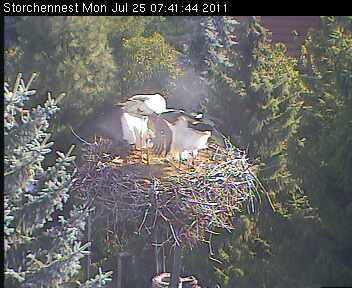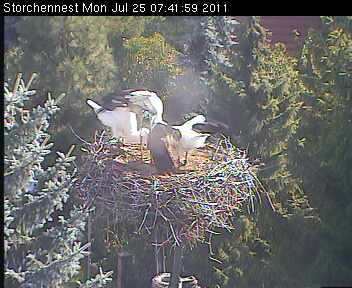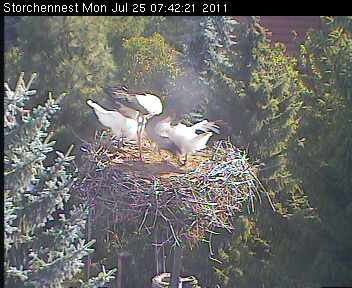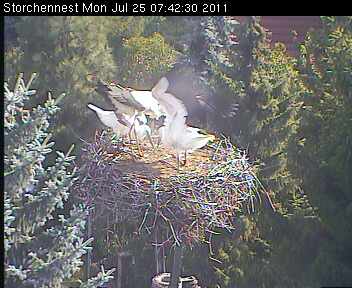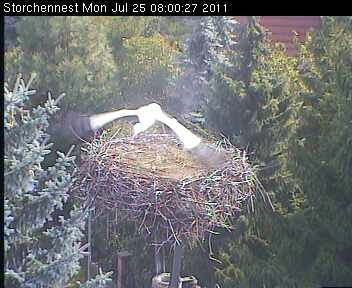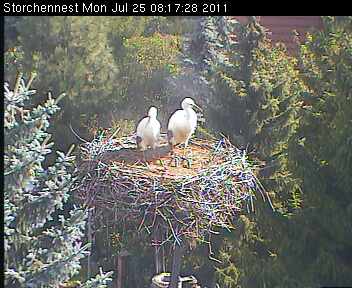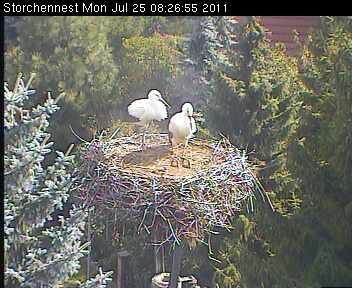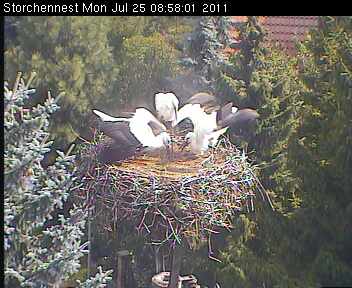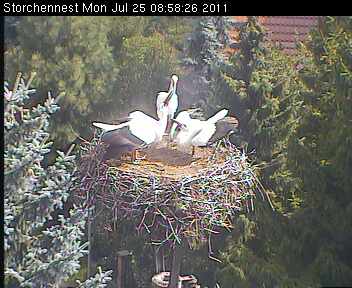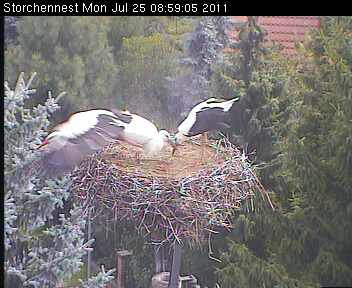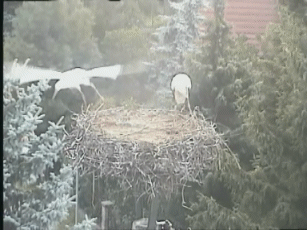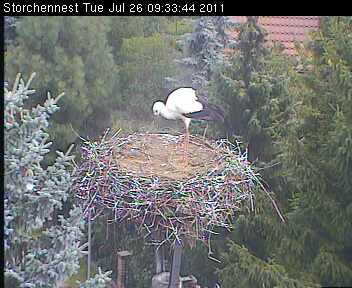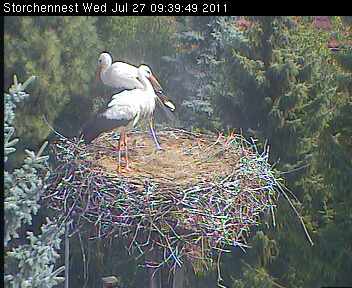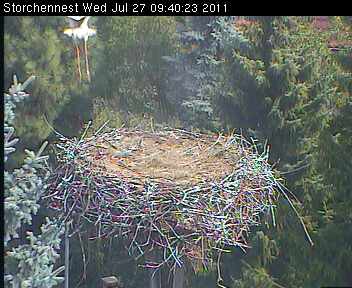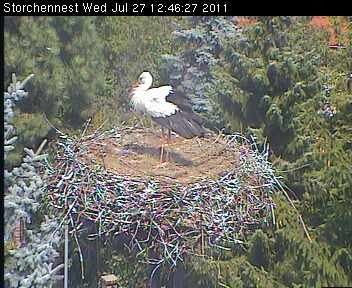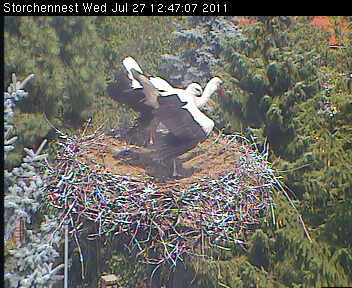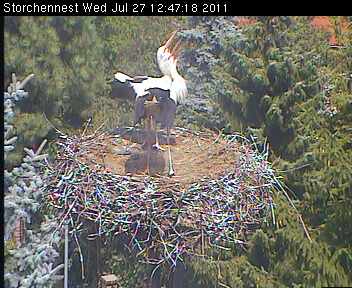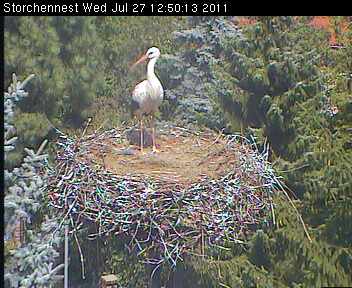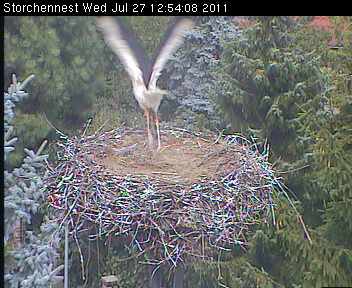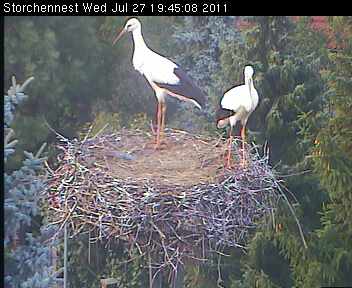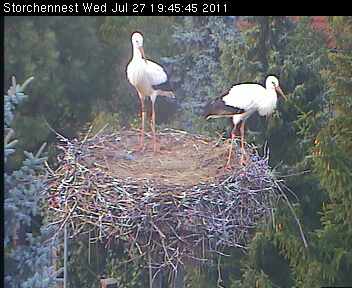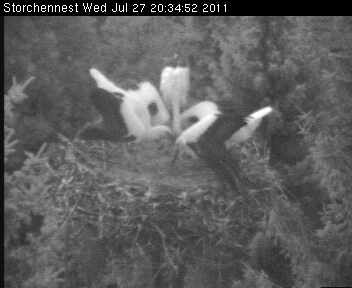http://www.youtube.com/watch?v=Pho0OYZp9NY
2011
Moderator: Storchenzentrum
-
Cheral in California
-
Regenstern
- Beiträge: 11497
- Registriert: Di 17. Apr 2007, 09:50
- Wohnort: Berlin
Big alert!
Both parents came to the nest, were clattering a lot.
The offsprings followed, they started to beg.
Finally Cico fed the voratious guys.
http://www.youtube.com/watch?v=HUjJM8gwT5Y
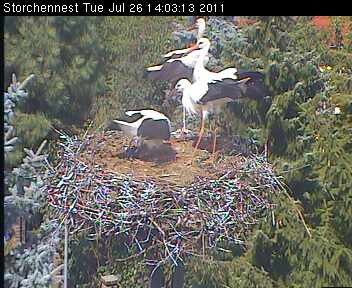
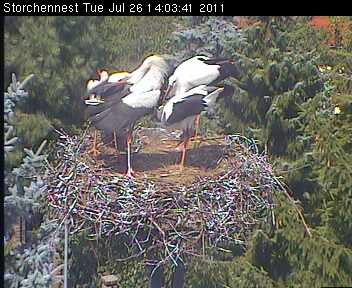
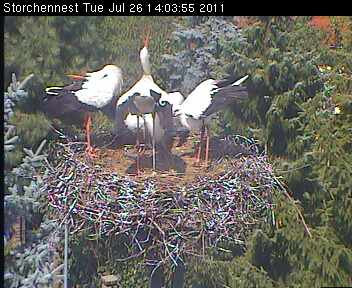
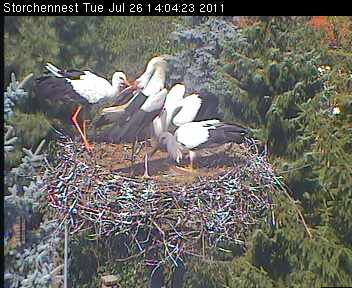

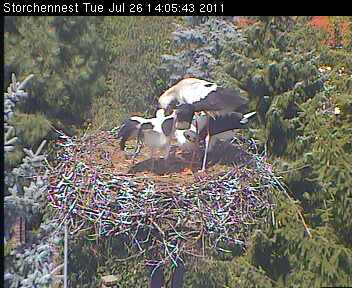
Who knows, how long we will hear the clattering sound or the begging youngsters.
News from the storkcenter:
The days of young white storks in the Internet Horst Vetschau going to end soon. The young storks were fledged and on the weight that is higher than that of the parents, and the size is not too different from the adult storks. The "baby fat" but quickly lose them, because the hard days of flight training and the ever more trips in the area have begun. The nest is now only used as a sleeping place. Something is different but the young storks in the first year of life apart from their parents: The beaks are not dyed red but change only slowly from initially reddish brown to black over bright red, too, the legs do not show the rich red of the adult storks.
Right now we are seeing again increased attacks by foreign storks in the nest, the attack even our young storks, but know what to defend themselves already. Together with the adult storks, which arrive at the nest immediately distribute them to intruders.
In NABU White Stork Information Center in the NL Vetschau Drebkau Str 2a you can track the annual local events through recordings of the camera.
B. Elsner
NABU Regional Association Calau e.V.
Both parents came to the nest, were clattering a lot.
The offsprings followed, they started to beg.
Finally Cico fed the voratious guys.
http://www.youtube.com/watch?v=HUjJM8gwT5Y






Who knows, how long we will hear the clattering sound or the begging youngsters.
News from the storkcenter:
The days of young white storks in the Internet Horst Vetschau going to end soon. The young storks were fledged and on the weight that is higher than that of the parents, and the size is not too different from the adult storks. The "baby fat" but quickly lose them, because the hard days of flight training and the ever more trips in the area have begun. The nest is now only used as a sleeping place. Something is different but the young storks in the first year of life apart from their parents: The beaks are not dyed red but change only slowly from initially reddish brown to black over bright red, too, the legs do not show the rich red of the adult storks.
Right now we are seeing again increased attacks by foreign storks in the nest, the attack even our young storks, but know what to defend themselves already. Together with the adult storks, which arrive at the nest immediately distribute them to intruders.
In NABU White Stork Information Center in the NL Vetschau Drebkau Str 2a you can track the annual local events through recordings of the camera.
B. Elsner
NABU Regional Association Calau e.V.
Storchenzentrum hat geschrieben:Die Tage der jungen Weißstörche im Internethorst Vetschau gehen bald zu Ende. Die Jungstörche sind flügge und sind vom Gewicht, dass über dem der Elterntiere liegt, und der Größe nicht mehr von den Altstörchen zu unterscheiden. Den "Babyspeck" verlieren sie aber schnell, denn die anstrengenden Tage der Flugübungen und die immer weiteren Ausflüge in die Umgebung haben begonnen. Der Horst wird jetzt nur noch als Schlafplatz genutzt. Etwas unterscheidet die Jungstörche aber im ersten Lebensjahr deutlich von ihren Eltern: Die Schnäbel sind nicht rot gefärbt sondern verändern sich erst langsam von anfänglich schwarz über braunrötlich zum leuchtendem Rot. Auch die Beine zeigen noch nicht das satte Rot der Altstörche.
Im Moment beobachten wir wieder vermehrt Angriffe von Fremdstörchen am Horst, die sogar unsere Jungstörche attackieren, welche sich aber schon zu verteidigen wissen. Gemeinsam mit den Altstörchen, die sich sofort am Horst einfinden, vertreiben sie die Eindringlinge.
Im NABU Weißstorch-Informationszentrum der NL in Vetschau, Drebkauer Str. 2a können Sie vor Ort das Jahresgeschehen durch Aufzeichnungen der Kamera nachvollziehen.
B. Elsner
NABU Regionalverband Calau e.V.
-
Cheral in California

